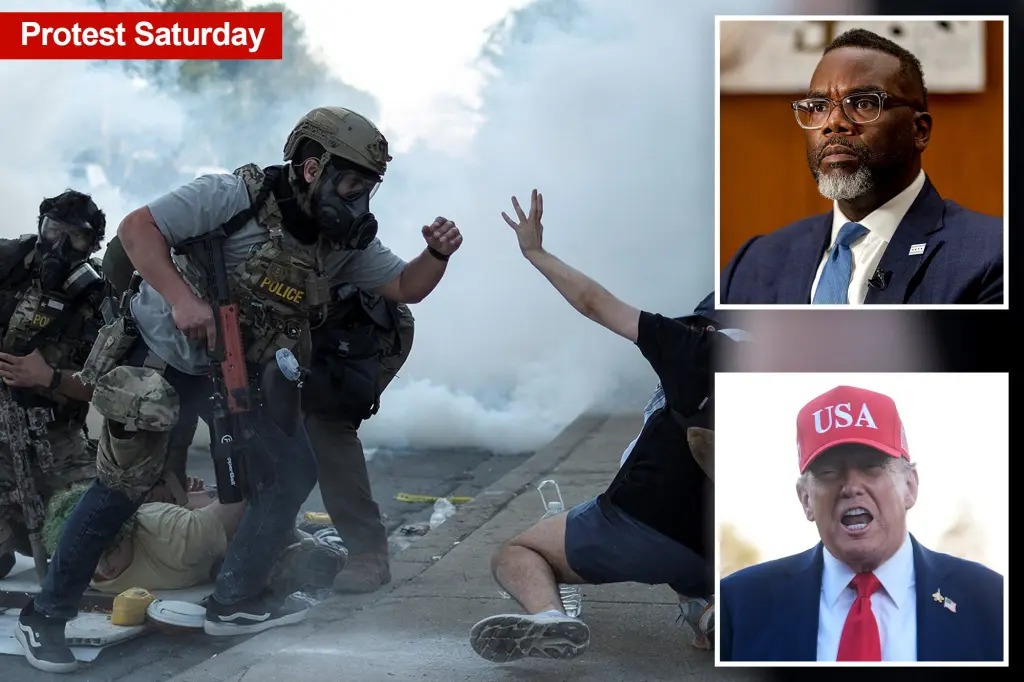White House and Chicago Mayor Clash Over Immigration Enforcement
In a heated exchange that underscores the deep divisions in America’s immigration debate, the White House severely criticized Chicago Mayor Brandon Johnson after he signed an executive order creating “ICE Free Zones” on city property. The White House’s Rapid Response 47 account on X (formerly Twitter) called Johnson’s action “SICK,” accusing him of “aiding and abetting criminal illegal immigrant killers, rapists, traffickers, and gang bangers.” This stark language highlights the intensifying rhetoric around immigration policy as the federal government and local authorities clash over enforcement priorities and jurisdictional boundaries.
Mayor Johnson’s executive order specifically prohibits Immigration and Customs Enforcement (ICE) agents from operating on city-owned spaces, including parking lots and other municipal properties. The timing of this order was particularly significant, coming as a direct response to the announcement that approximately 400 National Guard troops would be deployed to Chicago. Johnson explained his rationale in personal, community-focused terms, stating that “Our school parking lots are not for ICE to load their weapons,” and that libraries and parks should not become staging grounds for immigration raids or checkpoints. This framing presents the issue as one of protecting community spaces rather than simply opposing federal immigration policy.
The confrontation represents a classic tension in American governance between federal authority and local control. Johnson’s order aims to complicate immigration enforcement by preventing federal agents from using city infrastructure to coordinate their operations. While the federal government maintains legal authority to enforce immigration law, city officials like Johnson are asserting their right to determine how municipal resources are used. This standoff reflects broader political and philosophical disagreements about immigration enforcement strategies and the appropriate balance between national security concerns and local community interests.
Behind the inflammatory rhetoric and policy maneuvers lie real human concerns on both sides. For supporters of stricter immigration enforcement, the focus is on public safety and the rule of law, with particular emphasis on preventing violent crimes committed by individuals who are in the country illegally. The White House’s charged language about “killers” and “rapists” appeals directly to these fears. Meanwhile, immigrant advocates and officials like Johnson emphasize the human cost of aggressive enforcement tactics, which they argue can traumatize communities, separate families, and undermine trust between immigrant populations and local authorities, including police.
The dispute also reflects the increasingly polarized nature of immigration politics in America. What might once have been handled as an administrative disagreement between different levels of government has become a highly public confrontation with emotionally charged language on both sides. The White House’s characterization of Johnson’s actions as “SICK” and the mayor’s dramatic framing of his order as protecting schools and parks from federal intrusion both appeal more to emotional responses than to policy details. This pattern of escalating rhetoric makes finding common ground on immigration policy increasingly difficult, even as both sides claim to be acting in the interest of public safety.
As this conflict unfolds in Chicago, it serves as a microcosm of America’s broader struggle with immigration policy. Cities across the country are making similar calculations about their relationships with federal immigration authorities, creating a patchwork of approaches that complicate national enforcement efforts. For ordinary Chicago residents – both immigrants and native-born citizens – the practical impacts of this dispute will depend on how aggressively federal authorities pursue operations in the city and how effectively local officials can implement their restrictive policies. Meanwhile, the heated exchange between the White House and Mayor Johnson adds another chapter to the ongoing national conversation about immigration, enforcement priorities, and the proper balance between national and local authority.


